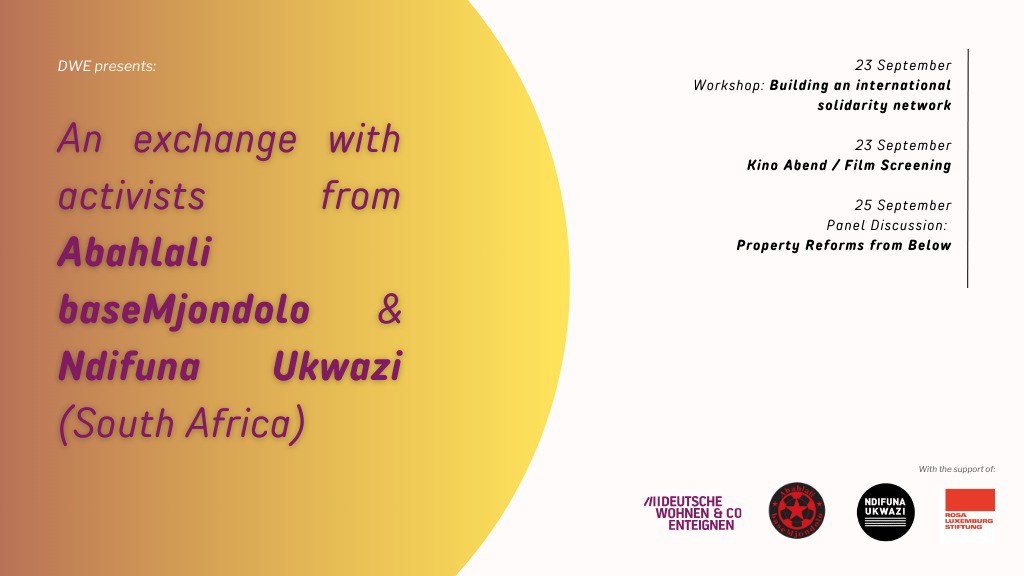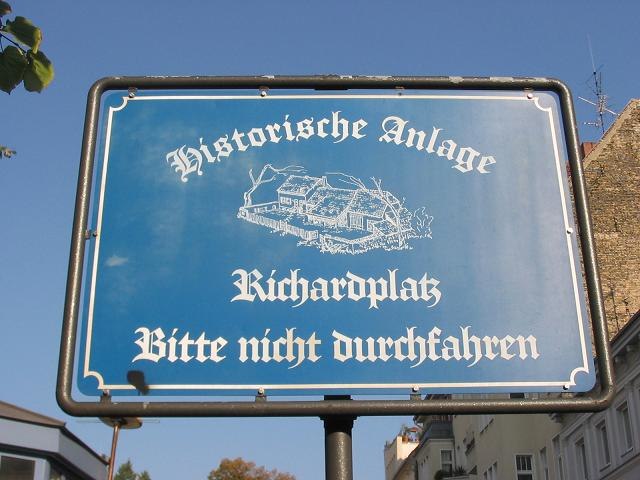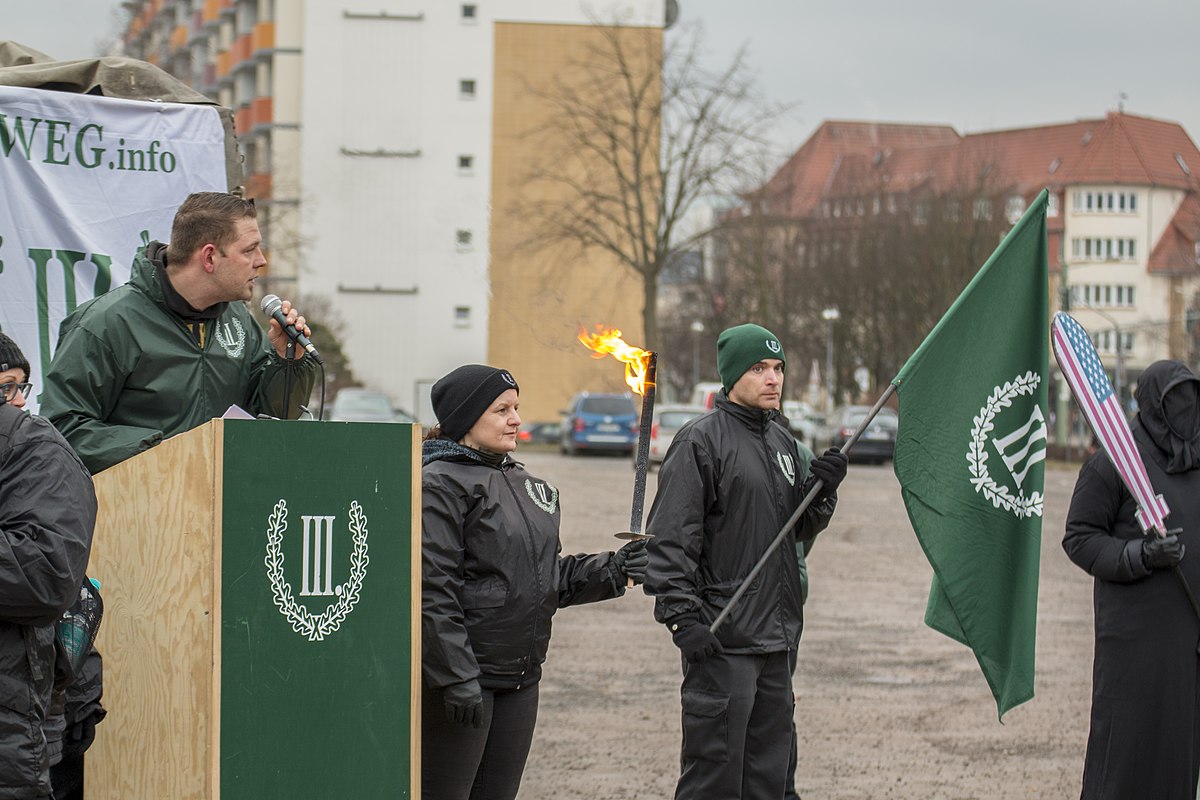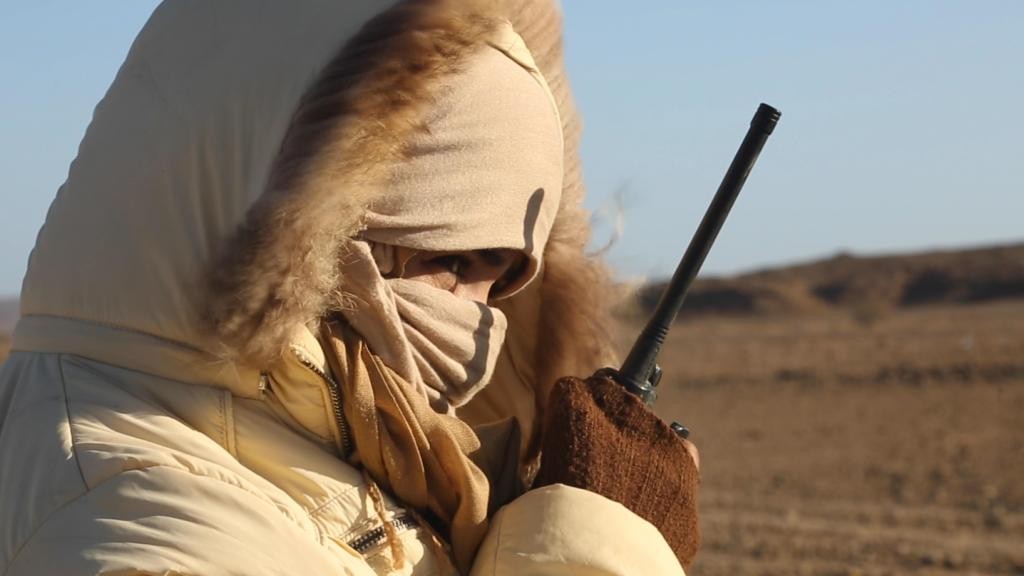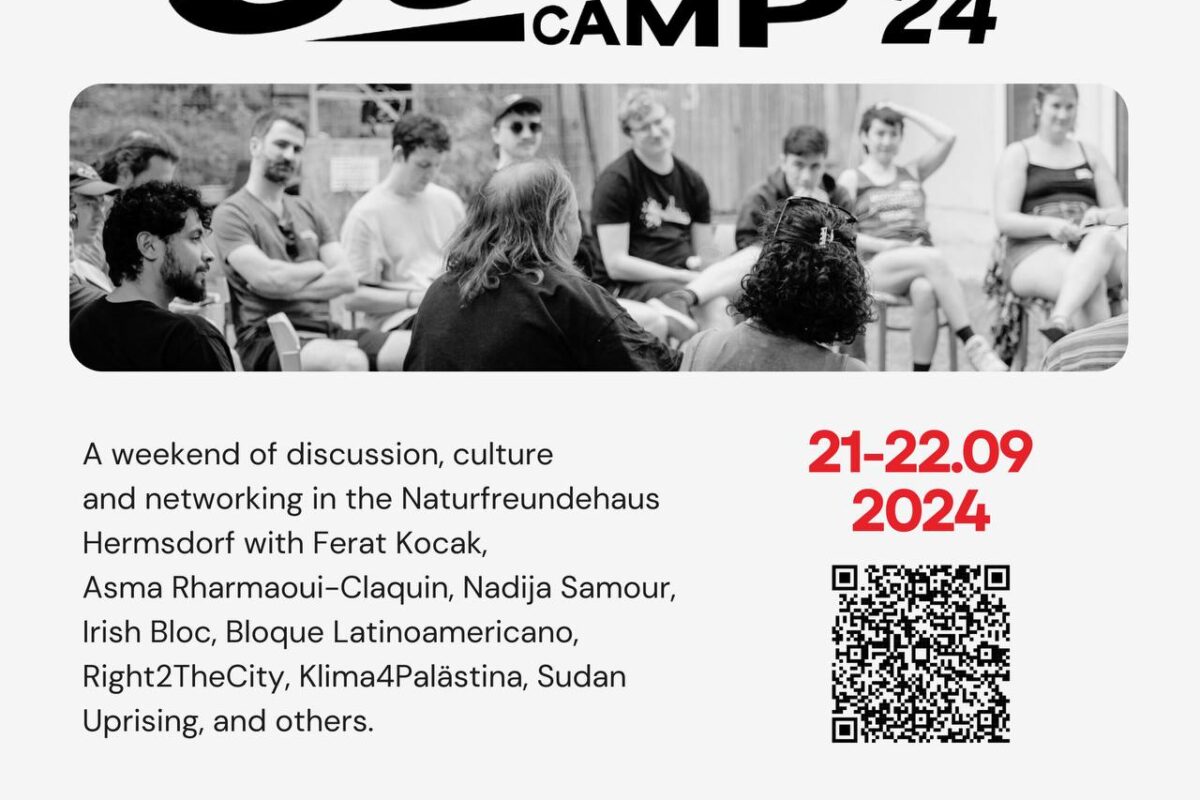This is a notice sent to The Left Berlin by Right 2 The City, the international section of Deutsch Wohnen & Co. Enteignen.
Deutsche Wohnen und Co Enteignen (DWE), with the support of the Rosa Luxemburg Stiftung, is happy to invite you to a series of exchange and activities with activists from the movement Abahlali baseMjondolo and from the NGO Ndifuna Ukwazi from South Africa.
On the third anniversary of the historic and successful referendum calling for the expropriation of large landlords, DWE is organizing an international exchange between housing movements. South African activists from the shack dwellers movement Abahlali baseMjondolo and from Ndifuna Ukwazi are visiting Berlin. We have put together a program of different activities with them!
1: Workshop – Building an international solidarity network
What connects housing struggles in Berlin and Capetown? What do neighborhood organizing and fighting for property reforms from below have to do with internationalism? What solidarity actions can be used to support each other across our local contexts? We invite you to take part in a workshop on these questions – and discussing the concrete possibility of establishing a solidarity network between housing movements from Berlin and South Africa.
In the morning part of the workshop, we will draw connections between the different local movements and share visions for the possibility of housing struggles to radically change our societies. In the afternoon session, we will focus on the concrete needs and potentials for long-term collaboration and practical solidarity between our movements.
Please register by sending an e-mail to ernacassara@zedat.fu-berlin.de, and let us know if you will come as an individual or if you represent an activist group.
2: Kino Abend – Film Screening about Housing Struggles
On Monday evening we are showing movies about the housing struggles in South Africa and the inspiring fight of Abahlali baseMjondolo, as well as “Start wearing purple”, the heartwarming documentary about the Deutsche Wohnen & Co. Enteignen initiative and referendum.
🗓️ Monday 23 September, 8pm, Regenbogenfabrik (Lausitzer Straße 21a, 10999 Berlin). Free entry.
🎤 The movies will be in English. “Start wearing purple” will have German subtitles.
3: Panel Discussion – Property Reforms from Below: A Discussion between Housing Movements from South Africa and Berlin
Speakers: Katalin Gennburg, Joana Kusiak, activists from Abahlali baseMjondolo, Ndifuna Ukwazi, and DWE
On Wednesday we are organizing a panel discussion to learn about the main struggles surrounding access to housing and land justice in South Africa, as well as the history, strategies and successes of our movements. Why must housing struggles be from below? How relevant is the form of property and the involvement of the state? How do movements organize themselves? We want to discuss these questions and more with our guests, as well as you. Come and join us!
🗓️ Wednesday 25 September, 7pm, KIEZRAUM auf dem Dragonerareal Obentrautstraße 1-21, 10963 Berlin. Free entry.
Accessibility: room is on the ground floor.
🎤 The Event is in English: German translation available on demand.
